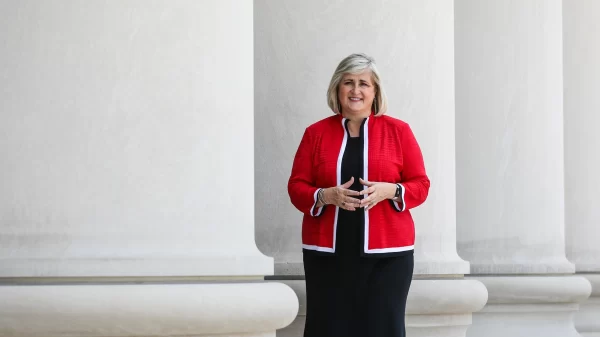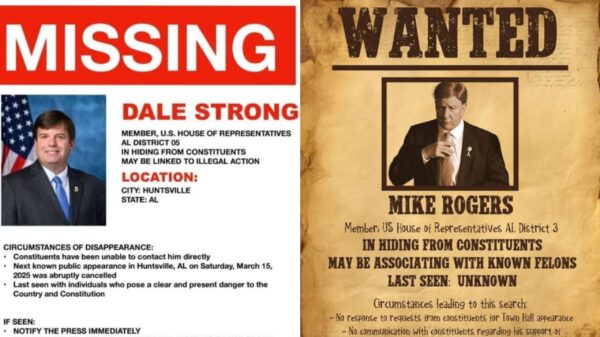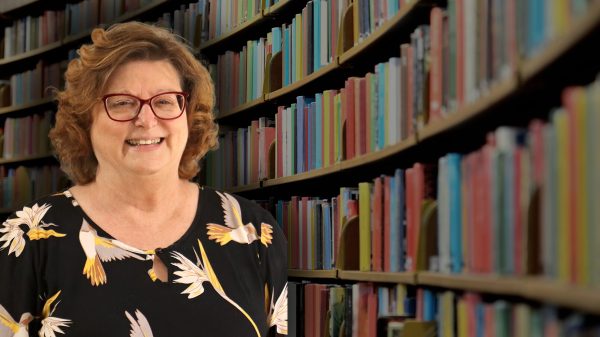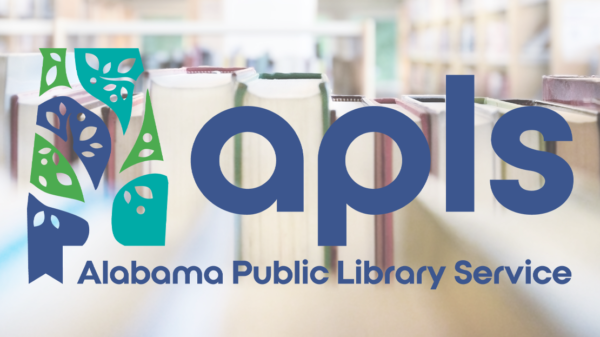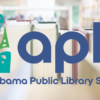|
Getting your Trinity Audio player ready...
|
The Huntsville-Madison-County Public Library system last week updated its policies to “uphold the principles of intellectual freedom” among other changes.
As challenges have popped up at libraries across the state, the Huntsville system has become the focus of controversy multiple times, from both sides.
The library first found itself mired in controversy when a planned event by Moms for Liberty to host faith-based TV star Kirk Cameron and disgruntled swimmer Riley Gaines for a “Brave Books” storytime was temporarily upended when it grew too big for the library’s facilities.
While the library claimed the event had to be canceled due to the estimated guest count ballooning well beyond fire code limits for the reserved room, Cameron and Moms for Liberty cried foul and said the group was being discriminated against based on its speech.
The two sides ultimately worked out a solution to hold the event as planned, with a hard limit on the number of attendees and the rest siphoned to an overflow room.
The library found itself in the news once again when a project began to reshelve LGBTQ children’s books en masse, plus one book that was simply written by an author with the last name “Gay.”
Director Cindy Hewitt said the relocation, which had already begun, was a result of a communication breakdown and not because the library wanted to target LGBTQ books.
Moms for Liberty of Madison County also wrote a letter to lawmakers recently claiming a 9-year-old boy had come across “All Boys Aren’t Blue,” even though that book is recommended for older teens.
The new policies approved by the board seem to reference some of those recent controversies and create policies that apply to those situations.
For example, the updated “room use” policy explicitly states that “facilities are available on an equitable basis, regardless of the beliefs or affiliations of individuals or groups requesting this use.” The room use policy is also updated to add: “View into the rooms may not be obstructed at any time.”
While the Huntsville library has firmly held that the Brave Books event was never canceled because of the views expressed, critics pointed to a training by the American Library Association where Director of Intellectual Freedom Deborah Caldwell-Stone mentioned “creative” ways to avoid allowing rooms to be used for disfavored speech.
The board also voted to create a new “unattended minor” policy, requiring parents to accompany children up to 10 years in age. Many other libraries have a similar policy, including the Prattville library.
Changes to the “staff programming” and “collection development” policies specifically emphasize intellectual freedom and diversity.
“The library upholds the principles of intellectual freedom and supports the rights of individuals to read, speak, view, and exchange points of view,” the new programming policy states. “In order to provides access to diverse perspectives, the library presents a variety of programs. Topics and speakers are not excluded from library programs because of possible controversy.”
The collection development policy states that “HMCPL supports the right of each family to decide which items are appropriate for use by their children” and that “while individuals may choose for themselves or their children, they may not choose for others.”
The new policies also clarify how books are placed within the library.
“Materials are initially placed in the collection based on publisher recommendation and regional library practice,” the policy states. “HMCPL staff may adjust placement of materials based on suitability of subject and style for the intended audience.”
And finally, a new policy on displays emphasizes variety and diversity.
“[HMCPL] will offer displays and exhibits that appeal to a range of ages, interests, and information needs of the Huntsville-Madison County community,” the policy states. “Displays and exhibit materials will be based on the suitability of the subject and style for the intended audience. Library-initiated displays and exhibits should not exclude any topics, books, media, and other resources solely because they may be considered controversial.”
The policy changes come as the Alabama Public Library Service considers changes to what policies are required for libraries to receive state aid. Changes proposed by Gov. Kay Ivey are currently about 60 days in to a 90-day comment period, and have so far been wildly unpopular.
Only 17 public comments submitted have supported the changes, while 399 letters have opposed them. The Alabama Library Association proposed its own amendment that would emphasize that librarians cannot act en loco parentis, or in the place of parents, when it comes to restricting access to materials.
Clean Up Alabama also opposes the changes, requesting policies more akin to a sweeping prohibition in Prattville, and freshly appointed APLS board member Amy Minton has proposed an amendment that would do just that.
That amendment is currently in subcommittee on the request of APLS board member and ALGOP chair John Wahl, who questioned whether the APLS has authority to implement such an amendment.
Claire Dixon of the Madison County chapter of Moms for Liberty argued the board’s new policies flout Ivey’s proposed changes.
“I’m really concerned about the proposed changes being in direct contrast to what the governor has asked of all the libraries,” Dixon said. “I’m concerned as a parent, I’m concerned as a citizen, I’m concerned as an aunt of two young niece and nephew. I really wish they could ‘read freely’ but they can’t, because I can’t trust that if one goes in one direction and one goes in the other … I cant’t trust now without standing over them that they may not pick up a book that has highly disturbing images.”
Dixon said the policy changes sound as if they could have been written directly by Read Freely Alabama.
Speaker Scott Jones said the majority of people in Huntsville are being “held hostage” by the LGBTQ community.
“We live in a city where 96.4 (percent) of the people are not LGBTQ-oriented, yet this board wants to hold that majority hostage to acquiesce to the 4.6 percent,” Jones said.
Jones pointed to the oft-challenged 1974 sex education book “It’s Perfectly Normal” as an inappropriate book for children, in part because it has a section that discusses masturbation as a normal part of sexual development.
“Anyone who says that that’s OK for an 8-year-old to hear is nothing more than a sexual pervert and it’s not OK,” Jones said.
Marissa Allison, organizer of the Madison County chapter of Read Freely, brought up the recent attacks by conservative media and several members of Congress against a transgender employee at Space Camp.
“I’m bringing this to you all today because some of the same actors that have given their voices to and inflamed the transphobic frenzy that we are seeing in our community have also been the same voices we have heard in library board meetings across our state and here locally,” Allison said. “I fear that our librarians could become the next victims of doxxing, so I’m going to ask the board to consider adding a policy to the rules of conduct to address this.”




















